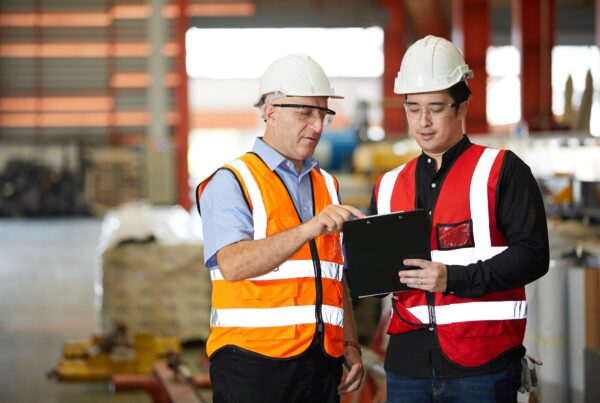SQF Certification for Food Manufacturers
In the competitive and stringent world of food manufacturing, adhering to high standards of quality and safety is not just a best practice—it’s a necessity. Among the various certifications that food manufacturers strive for, SQF (Safe Quality Food) certification stands out as a pivotal achievement. This certification not only demonstrates a commitment to exceptional quality and safety standards but also opens doors to a broader market, including discerning consumers and retailers who prioritize food safety. For any food manufacturer planning to make a mark in the industry, understanding and obtaining SQF certification is a crucial step.
What is SQF Certification in the Food Industry?
SQF certification, recognized globally, is more than just a badge of honor; it’s a rigorous, credible, and comprehensive food safety and quality program. The Safe Quality Food Institute, a division of the Food Marketing Institute, administers this program. It’s designed to validate a food manufacturer’s ability to produce safe, quality food, in compliance with international and domestic food safety regulations. Achieving SQF certification involves a thorough evaluation of a manufacturer’s food safety and quality management system, encompassing every step from sourcing raw materials to manufacturing processes.
How Long Does it Take to Get SQF Certified?
The journey to SQF certification is a structured yet variable process. It typically begins with a comprehensive gap analysis, where a company assesses its current systems against SQF requirements. Following this, the manufacturer develops and implements a robust SQF system, training staff and aligning practices with the SQF Code.
The actual timeline for achieving certification varies depending on several factors, including the size of the facility, the complexity of the processes, and the current level of compliance. Generally, it can take anywhere from six months to a year from the start of preparation to achieving certification. This includes the time needed for conducting internal audits, making necessary adjustments, and scheduling the final certification audit by an SQF licensed certification body.
How Much Does SQF Certification Cost?
The financial investment in obtaining SQF certification is as variable as the time investment. Costs can be broadly categorized into preparation costs, including consultancy fees (if external help is sought), training, and system upgrades, and the certification costs, which include audit fees.
For a small to medium-sized facility, the total cost for achieving SQF certification, including preparation and the actual certification process, can range from a few thousand to tens of thousands of dollars. This cost fluctuates based on the complexity of the operation, the level of readiness of the company, and the certification level being sought. While this may seem like a substantial investment, the long-term benefits of SQF certification, such as improved product quality, enhanced market access, and reduced compliance risk, often outweigh the initial costs.
I am Already HACCP Certified, Do I Still Need SQF?
Understanding the Difference and Complementarity of HACCP and SQF
For food manufacturers and co-packers already holding a HACCP (Hazard Analysis and Critical Control Points) certification, the question of whether to pursue SQF (Safe Quality Food) certification is a common one. Both HACCP and SQF are integral to ensuring food safety, but they serve different purposes and offer distinct benefits.
The Role of HACCP Certification
HACCP is a globally recognized food safety management system that focuses on identifying and controlling hazards that could potentially impact food safety. It is a preventive approach to food safety that involves:
- Identifying potential hazards.
- Determining critical control points where these hazards can be effectively controlled or eliminated.
- Monitoring these control points.
HACCP certification demonstrates a commitment to maintaining a food safety plan and is often seen as a foundational element in food safety management.
The Added Value of SQF Certification
SQF certification, on the other hand, is a comprehensive food safety and quality management system. It encompasses not only food safety (like HACCP) but also extends to food quality. SQF is recognized by retailers and foodservice providers around the world who require a rigorous, credible food safety management system.
Key benefits of SQF certification include:
- Broader Scope: While HACCP focuses on food safety, SQF also addresses food quality, giving a more holistic approach to the production process.
- Market Access: Many retailers and international markets require or prefer SQF certification, making it a key factor for expanding market reach.
- Consumer Confidence: SQF certification can enhance consumer trust and brand reputation by demonstrating adherence to global food safety standards.
- Continuous Improvement: SQF includes a strong element of continuous improvement, ensuring that food safety and quality processes evolve and improve over time.
Decision-Making: HACCP and SQF Together
While HACCP certification is an excellent starting point and foundational element for food safety, SQF certification can take a company’s food safety and quality assurance practices to the next level. For businesses looking to expand their market reach, enhance their brand reputation, and commit to continuous improvement in food quality and safety, obtaining SQF certification, in addition to HACCP, can be a strategic and beneficial move.
Each business must weigh the benefits against the investment in time and resources to determine if pursuing SQF certification is the right decision for their growth and operational goals.
Getting SQF Certified as a Co-packer
For co-packers in the food industry, SQF certification is not just beneficial—it’s often a critical requirement to stay competitive and compliant. SQF certified co-packers are able to command a larger marketing share for different brands, so maintaining a universally recognized standard of safety and quality is paramount. This is where integrating a comprehensive Manufacturing Execution System (MES) like Mar-Kov’s food manufacturing safety solutions becomes invaluable.
The Role of MES in SQF Certification for Co-packers
A robust MES plays a vital role in helping co-packers navigate the complexities of SQF certification. These systems offer tools for process management, traceability, compliance, and continuous improvement, all of which are key aspects of the SQF program.
Key Considerations for Co-packers Seeking SQF Certification
- Comprehensive Process Management: MES to mange food manufacturuing and WMS solutions in the warehouse assist in managing and documenting the production process, ensuring every step complies with SQF standards. This includes everything from raw material handling to final product packaging.This comprehensive oversight is critical for meeting the SQF Code’s requirements.
- Traceability and Transparency: One of the core elements of SQF certification is the ability to trace every ingredient throughout the manufacturing process. An effective MES provides this level of traceability, ensuring that co-packers can quickly identify and address any quality or safety issues.
- Regulatory Compliance: Adherence to constantly evolving food safety regulations is simplified through MES, which can be updated to reflect the latest standards and ensure ongoing compliance.
- Quality Control and Continuous Improvement: Continuous quality improvement is a fundamental requirement of the SQF Code. MES solutions offer real-time monitoring and analytics, helping co-packers to maintain high-quality standards and make data-driven improvements.
- Employee Training and Engagement: Implementing a new system requires staff training. The intuitive interfaces of modern MES solutions facilitate quick learning and deeper engagement with quality and safety processes.
SQF Certification – Your Journey Begins
For co-packers, SQF certification is not just about meeting a standard; it’s about demonstrating a culture of excellence in food safety and quality. While a food specific ERP solution play a critical role in this journey, the ultimate success hinges on a comprehensive approach that includes dedicated team efforts, robust process controls, and continuous improvement. This holistic approach ensures that co-packers can achieve and maintain their SQF certification, thereby elevating their position in the competitive food industry.
To learn more about how you can enhance your food safety and quality processes in the journey towards SQF certification, feel free to reach out to us. Our experts are ready to guide you through every step of this vital journey. Book a call today.




